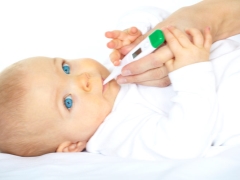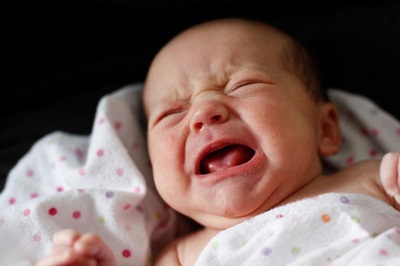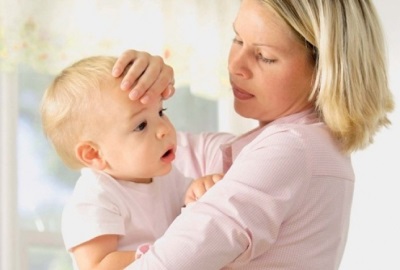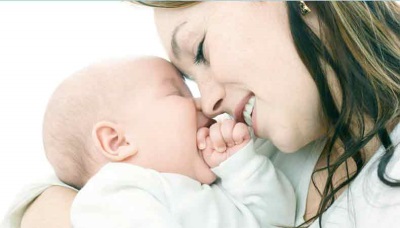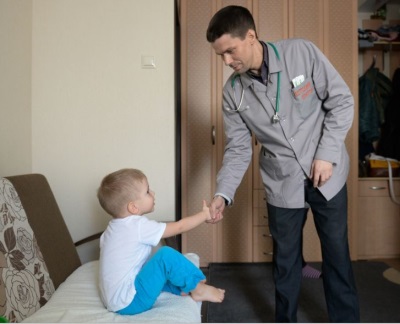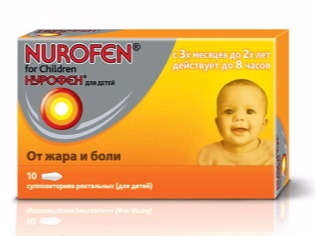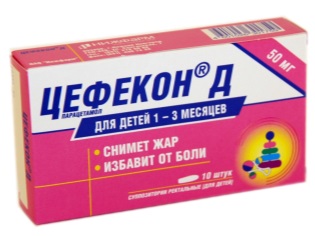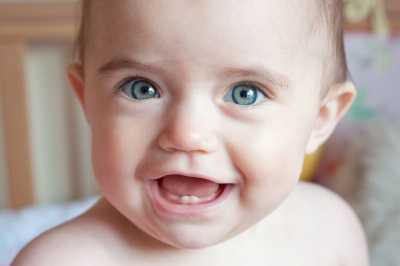What is the temperature associated with teething in children?
All mothers rejoice at the next “spiked” tooth of their restless, but in some babies, when teething baby teeth, the general condition worsens, which upsets parents very much. Babies have a fever and other unpleasant symptoms, and mothers begin to worry about whether the increase in performance on the thermometer is related to the teeth, why it happens and how to act if the child has a rather high temperature on the teeth.
The reasons
The growth of body temperature in children, which is often observed during the eruption of fangs and other teeth, provokes such factors:
- Gum disease due to the release of biologically active compounds required to soften tissues and increase their looseness.
- Decrease in the oral cavity local immunity.
The most frequently noted temperature rise during the eruption of molars, called molars. Their area is larger, so the eruption of their crown through the gum is more painful for an infant than the appearance of incisors.
Also, children often respond with fever to the eruption of the upper canines.. For the proximity to the facial nerve, such teeth are called ocular. Their eruption in addition to fever is often accompanied by severe pain, as well as symptoms resembling conjunctivitis.
On the causes of temperature during teething, as well as how to distinguish the "dental" temperature from SARS, see the video:
What is the temperature on the teeth?
- If the baby's temperature rises when milk teeth are cut, then most often its numbers do not exceed + 37 + 37.5 ° С. In such situation no action is taken, but just watching the baby, to notice the moment when the temperature began to rise further.
- A little less elevated when teething temperature will be + 37.5 ° С + 38 ° С. usually, it is knocked down according to the condition of the child.
- Temperature 39 degrees and higher occurs when new teeth appear extremely rarely. It can be dangerous to the health of the peanut, therefore requires immediate medical attention.
How many days does the temperature last?
The exact timing of the duration of increased temperature on the teeth does not exist, because All babies react to the appearance of a new tooth individually. Someone feels only a few hours or one day, and there are babies who react with prolonged heat for up to a week (for example, if several teeth are cut at once). On average, a high temperature during teething is observed within 1-3 days.
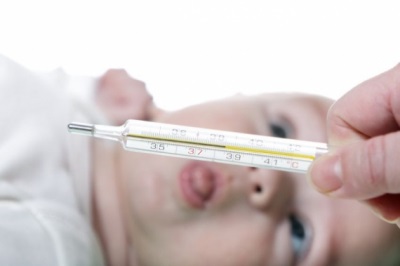
Other teething symptoms
In addition to the increased temperature in babies with cutting teeth, there are:
- Copious salivation.
- Moody behavior and irritability.
- Worse sleep
- Frequent crying.
- The appearance of redness and irritation on the face.
- Decreased appetite.
- The constant desire to take anything in the mouth.
Opinion Komarovsky
The well-known pediatrician calls a moderate temperature increase in children who have their teeth cut, a common situation, but at the same time he claims that the indicator on the thermometer above + 38 ° C, most likely, is associated not with teething, but with other reasons, in particular, with a viral infection provoked by a reduced immunity.
What to do?
Should I churn the temperature?
If the indicator on the thermometer does not exceed + 38 ° C, in most cases there is no need to bring down the temperature of the baby. Many babies tolerate this temperature well, but sometimes, even with such a slight increase, the crumb feels bad, capricious, crying, not sleeping and refusing food. In such a situation, the child should be helped by reducing the manifestations of fever.
Some babies do not need to be given antipyretic even at higher numbers if the crumb tolerates fever, is active and looks cheerful. If the peanut feels bad, it is necessary to bring down the temperature, and in the presence of neurological problems in a child, a decrease in temperature is indicated with a fever above + 37.5 ° C.
How dangerous is this condition?
Most babies have a fever that does not cause any dangerous negative effects, but there are situations where the fever negatively affects the heart, lungs, brain and karapuz liver. Prolonged fever with the appearance of new teeth exerts an increased load on these organs, and also can provoke dehydration and the appearance of convulsions.
The smaller the baby, the greater the risk of respiratory disorders and heart rate, as well as seizures. The most dangerous situation is a rapid increase in performance (within a few hours) or a prolonged high temperature, persisting despite its treatment.
How to eliminate the disease?
If teething is the cause of the fever, the baby will have other signs, first of all, swelling of the gums, copious saliva, moods and the desire to scratch the gums. In addition, immediately after cutting the tip of the tooth through the gum, the temperature drops.
When the temperature caused by ARVI rises, other symptoms of the infection can be found in the child, for example, a red throat or a runny nose. Besides, fever with viral disease will increase and its duration will be more than three days.
How to help the child?
With increasing temperature in the first place you need to assess the general condition of the crumbs. Remember that the baby during this period really needs a mother, so surround the baby with care, do not be nervous, hold it in your arms for a long time. If the baby is breastfeeding, allow it to be applied more often. To distract the toddler from unpleasant sensations, read a book of crumbs, make up quiet games.
Note that knocking the temperature on the teeth to normal numbers is not necessary. It is enough that after the measures taken, the indicator decreased by 1-2 degrees.
When to call a doctor?
It is important to seek medical help if at least one of these symptoms is added to an elevated temperature:
- A strong breakdown.
- Rash on the skin.
- Severe vomiting.
- Diarrhea.
- Difficulty breathing.
- Cramps.
- Heart palpitations.
Be sure to call an ambulance if the temperature quickly rose to high numbers (39-40 degrees). It is also recommended to show a baby with teeth cutting and temperature, if the increased thermometer data is observed for more than three days.
Treatment
Medicines
To knock down the temperature on the teeth is advised by a medication only after consulting a doctor. Often, the child is prescribed medication in the form of candles or syrup, the active ingredient of which is paracetamol (preferably) or ibuprofen. Candles do not act immediately, but provide a decrease in temperature for a rather long period, and the syrup is easy to dose, so both of these forms are used in infants of the first years of life. Additionally, babies with incisal teeth are prescribed gels that have an anesthetic effect.
Folk remedies
If a mother does not want to give a crumbs of drugstores, she can try such popular methods:
- Give your baby more drink plain water, herbal tea, warm compote, milk.
- More often to air the room and not to muffle the child. In infants should remove the diaper and cover the baby with a diaper.
- Wipe the baby with warm water every two to three hours. Proceed in turn the feet and hands of the baby, then the inguinal, as well as axillary depressions. In addition, they wipe the elbows with water and under the knees. Children over the age of infancy are recommended warm shower.
- Apply to the body of the kid sheets of cabbage, which should be held for a few seconds in boiling water, then beat off and cool.
What can not be done?
- You should not give the child solid cookies, bread crusts and other products, able to crumble and with sharp pieces wound the inflamed karapuz gums.
- Do not rub your fingers gums baby, to "help" the tooth cut.
- Do not overstrain the crumb abundance of games or activities with toys.
- Do not give your baby toys with sharp edges., which, if they hit the baby’s mouth, will scratch the mucous membrane.
- Do not use vinegar or alcohol for grinding, so as not to cause intoxication in the infant from these agents.
- Do not give any other antipyretic agents other than those that contain paracetamol or ibuprofen.
- Do not use in self-medication antibiotics or antiviral medication.
